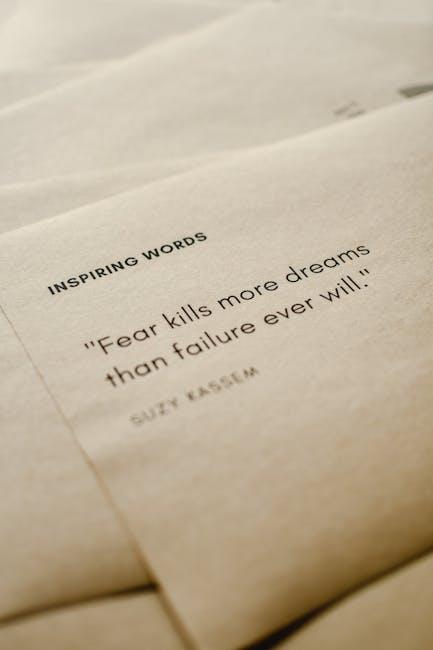In the grand tapestry of human existence, relationships form the intricate threads that bind our experiences together. From the tender bonds of friendship to the deep connections of love, these relationships shape our lives in profound ways. Yet, navigating the complexities of human interaction can often feel like an art form, requiring a delicate balance of empathy, understanding, and communication. At the heart of this art lies a powerful tool: emotional intelligence. This article embarks on a journey to uncover the secrets of developing emotional intelligence, a skill that can transform ordinary interactions into extraordinary connections. Whether you’re looking to strengthen your relationships with family, friends, or colleagues, the insights shared here will illuminate the path to more meaningful and fulfilling connections.
Understanding Your Emotions: The Foundation of Emotional Intelligence
Emotions are intricate and multifaceted, often acting as the hidden forces that shape our interactions and decisions. By delving into the depths of your own feelings, you lay the groundwork for cultivating emotional intelligence, a skill that can transform your relationships. Start by acknowledging your emotions without judgment. This self-awareness can be enhanced through practices such as:
- Mindfulness: Regularly take a few moments to check in with yourself, observing your thoughts and feelings.
- Journaling: Write down your emotions daily to gain insights into patterns and triggers.
- Reflection: Spend time contemplating past experiences and how they made you feel.
Understanding your emotions is not just about recognizing them, but also about interpreting their underlying causes and effects. This deeper comprehension allows you to manage your reactions more effectively, fostering empathy and enhancing your ability to connect with others. By mastering this foundational aspect of emotional intelligence, you pave the way for healthier, more meaningful relationships.

Cultivating Empathy: Stepping into Others Shoes
Empathy is a cornerstone of emotional intelligence, enabling us to connect with others on a deeper level. By actively engaging in the practice of understanding and sharing the feelings of another, we can foster stronger, more meaningful relationships. Here are a few strategies to help you cultivate empathy:
- Active Listening: Pay close attention to what the other person is saying without planning your response. This shows that you value their perspective and are genuinely interested in their feelings.
- Open-Mindedness: Suspend judgment and be open to experiences and viewpoints different from your own. This allows you to appreciate the complexities of others’ emotions and situations.
- Body Language: Observe non-verbal cues such as facial expressions, gestures, and posture. These often communicate emotions more powerfully than words alone.
By incorporating these practices into your daily interactions, you can begin to truly understand and resonate with the experiences of those around you, paving the way for deeper emotional connections.

Effective Communication: Bridging Emotional Gaps
One of the core elements of emotional intelligence is the ability to communicate effectively. This involves more than just exchanging information; it’s about understanding the emotions and intentions behind the information. To bridge emotional gaps, focus on the following key practices:
- Active Listening: Show genuine interest in the other person’s words and feelings. This means maintaining eye contact, nodding, and providing verbal affirmations like ”I understand” or “That makes sense.”
- Empathy: Put yourself in the other person’s shoes. Try to feel what they are feeling and respond with compassion and understanding.
- Nonverbal Cues: Be aware of your body language, facial expressions, and tone of voice. These nonverbal signals can often convey more than words.
- Clarity and Conciseness: Be clear and to the point. Avoid jargon and overly complex language to ensure your message is easily understood.
- Emotional Regulation: Keep your emotions in check. Responding calmly and thoughtfully, rather than reacting impulsively, can prevent misunderstandings and conflicts.
Conflict Resolution: Turning Tensions into Opportunities for Growth
In every relationship, whether personal or professional, conflicts are inevitable. However, these moments of tension can be transformed into valuable opportunities for growth and deeper understanding. To navigate conflicts effectively, developing emotional intelligence is crucial. Emotional intelligence involves recognizing and managing our own emotions, as well as understanding and influencing the emotions of others.
Here are some ways to harness emotional intelligence for conflict resolution:
- Self-awareness: Take time to reflect on your own emotional triggers and responses. Understanding what sets you off and why can help you approach conflicts more calmly.
- Empathy: Practice putting yourself in the other person’s shoes. This can help you understand their perspective and reduce the likelihood of misunderstandings.
- Active listening: Focus on truly hearing what the other person is saying, rather than planning your next rebuttal. This shows respect and can de-escalate tension.
- Clear communication: Express your feelings and needs honestly but respectfully. Avoid blame and focus on finding solutions that work for both parties.
- Adaptability: Be willing to adjust your approach as the situation evolves. Flexibility can lead to more creative and effective resolutions.
By cultivating these skills, you can turn potential conflicts into opportunities to strengthen your relationships and foster a more collaborative environment.





